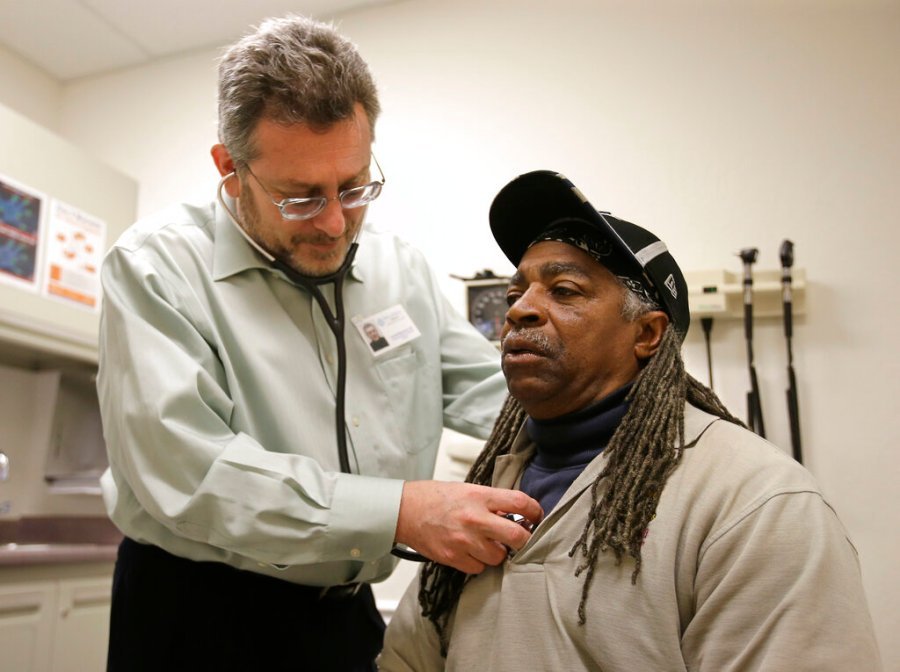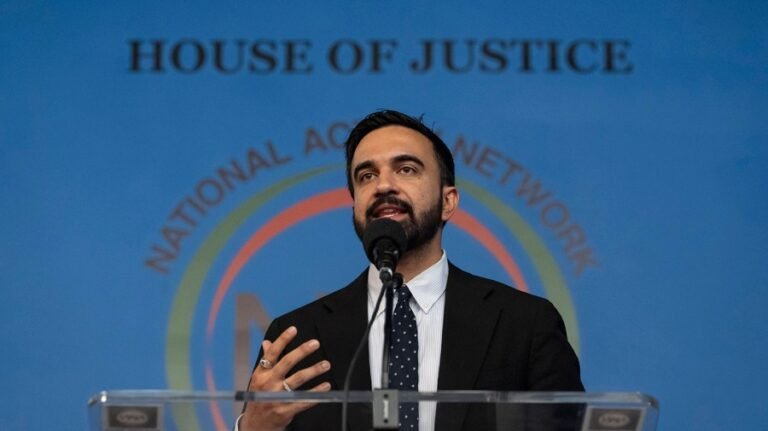
The debate around public safety is overly focused on policing, prosecution and punishment. One of the most effective tools for building safer communities — Medicaid, known as Medi-Cal in California — is on the chopping block in Congress’s proposed budget.
Medicaid isn’t just a health care program; it funds mental health and substance use treatment. Accordingly, it’s a cornerstone of public safety infrastructure.
Research shows that when people have access to health coverage through Medicaid, communities experience fewer crimes, fewer incarcerations and less strain on emergency systems. The reverse is also true: Cuts to Medicaid have negative consequences for public safety.
So, a Senate-passed budget that puts nearly $1 trillion in Medicaid funding on the chopping block doesn’t just threaten health care, it also jeopardizes progress on public safety.
As two people with experience in criminal justice reform, we see the connection between health care access and safer communities. When people reentering society receive addiction treatment services, mental health services and even basic health care, they can focus on completing their education, securing a job and reuniting with their families. These are all key strategies for reducing recidivism — ensuring people don’t end up back in the prison system after they are released.
Our friend Alex is a formerly incarcerated man who now works to help others like him sign up for Medicaid. For him, it’s more than a job — it’s a lifeline. Alex’s employment reinforces his own stability, while helping others access the health care they need to stay out of crisis and out of prison. If Congress enacts deep Medicaid cuts, Alex loses his job, and we lose a proven strategy for public safety. We shouldn’t dismantle programs that help people rebuild their lives and keep communities safer.
History is full of warnings about the impact of health care cuts on public safety. In 2005, Tennessee rolled back Medicaid coverage for over 170,000 low-income residents. Within two years, those counties saw a nearly 17 percent increase in crime. When people lose access to stabilizing care, the risks of crisis — including contact with the justice system — skyrocket.
This matters because more than 70 percent of people in jails and prisons today have at least one diagnosed mental health condition or substance use disorder. That’s not a coincidence — it’s a warning. Without access to care, individuals often end up in emergency rooms, shelters or jail cells. That’s our broken health care system manifesting as a public safety failure.
Fortunately, we know what works. Under California’s CalAIM initiative, Medi-Cal now offers Enhanced Care Management and Community Supports — services designed to stabilize housing, provide mental health and addiction services, and meet people where they are before a crisis occurs. These programs are compassionate, cost-effective and reduce reliance on emergency interventions.
This model supports reentry and stabilizes families. When parents have access to health care and the support they need to heal from addiction, trauma or incarceration, their children are less likely to enter the justice system or the foster care systems.
To foster an ecosystem of care for those reentering society, the Amity Foundation integrates health care with education programs, group therapy services and employment services — all of which depend on Medicaid to operate. If the proposed cuts become law, Amity’s clinics will shut down, jeopardizing the stability their students need to succeed after years of incarceration. Amity’s clinics are not unique — millions nationwide could lose care if clinics close their doors.
Medicaid is public safety. It is prevention. It’s de-escalation. It’s treatment instead of incarceration. And when designed thoughtfully and implemented intentionally, it gives people a fair shot at stability, health and dignity.
But we must protect it. Proposals to scale back Medicaid or impose barriers like work requirements threaten to reverse progress. These policies may sound sensible or tough on wasteful spending, but they make communities less safe by stripping away the supports that prevent crime. If we’re serious about safety, we have to be serious about Medicaid. We must see it for what it is: an effective public safety strategy.
Handcuffs, courtrooms and prisons can only take public safety so far. Safe communities start with prevention — and that means protecting and investing in Medicaid.
Sydney Kamlager-Dove, a Democrat, represents California’s 37th Congressional District (in Los Angeles) in the U.S. House of Representatives. Doug Bond is CEO of Amity Foundation, with locations in the 37th District. Together, they have collaborated on justice reform efforts focused on reducing incarceration and improving reentry outcomes in California.


